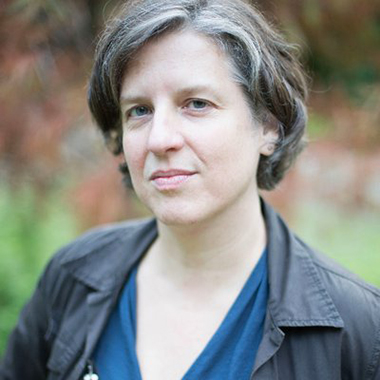New Book Examines How Automated Welfare Programs Fail the Country’s Poorest Families
PoliSci Associate Professor Virginia Eubanks' work featured in National Media
 |
|
Virginia Eubanks is an associate professor of political science. |
ALBANY, N.Y. (Feb. 27, 2018) – Virginia Eubanks, an associate professor of political science at UAlbany, has garnered national media attention for her new book, Automating Inequality: How High-Tech Tools Profile, Police and Punish the Poor.
In the book, she details three examples of technology failing to streamline welfare programs:
• an effort to automate eligibility processes for public assistance programs in Indiana
• an electronic registry of the homeless in California
• a statistical model in Pennsylvania that attempts to predict child maltreatment
These automated public service systems are designed to serve some of the country’s most vulnerable populations, such as those living in poverty or contending with poor health, while at the same time saving the government time and money. But these technologies can leave poor families feeling tracked, targeted and trapped, according to Eubanks.
“In Automating Inequality, I argue that we are building a digital poorhouse with statistical models, artificial intelligence, machine learning and algorithms in public service programs,” she said. “Despite all our talk about ‘disruption,’ these tools are more evolution than revolution. Their purposes are very much in line with the brick-and-mortar poorhouses of the past.”
Eubanks said that one underlying issue is that automated systems do not remove human bias, but rather exacerbate inequality.
“We’re using automated decision-making systems to avoid some of the most pressing moral and political challenges of our time, specifically poverty and racism,” she said. “Though we think of these computerized decision-making systems as neutral and objective, political assumptions and biases are baked right into them."
Eubanks said that one of her biggest surprises from doing this 8-year project was the immense resilience and positivity she witnessed in the individuals she met.
“What buoyed me, and what makes me optimistic about the future, is the remarkable generosity, insight and courage of poor and working-class families and communities,” she said. “The people I spoke to for the book took incredible risks sharing their stories, and I’m immensely grateful to them.”
Eubanks will be doing a reading of her book at Market Block Books (290 River St.) in Troy, N.Y. at 11 a.m. on Saturday, March 31.
National Media Coverage
Eubanks’ work has been featured in the following major outlets over the past month:
• The Atlantic: When Welfare Decisions are Left to Algorithms
• NPR: ‘Automating Inequality’: Algorithms In Public Services Often Fail The Most Vulnerable
• Vox: How big data is helping states kick poor people off welfare
• Wired: A Child Abuse Prediction Model Fails Poor Families
• Jacobin Magazine: The High-Tech Poorhouse
• Financial Times: When algorithms reinforce inequality
• NY Daily News: ‘Automating Inequality’ warns of a dystopian future punishing the poor – in the present: book review
Eubanks, who lives in Troy, N.Y., is the founding member of the Our Data Bodies Project and a Fellow at New America.
![]() For more news, subscribe to UAlbany's RSS headline feeds
For more news, subscribe to UAlbany's RSS headline feeds
A comprehensive public research university, the University at Albany-SUNY offers more than 120 undergraduate majors and minors and 125 master's, doctoral and graduate certificate programs. UAlbany is a leader among all New York State colleges and universities in such diverse fields as atmospheric and environmental sciences, business, education, public health,health sciences, criminal justice, emergency preparedness, engineering and applied sciences, informatics, public administration, social welfare and sociology, taught by an extensive roster of faculty experts. It also offers expanded academic and research opportunities for students through an affiliation with Albany Law School. With a curriculum enhanced by 600 study-abroad opportunities, UAlbany launches great careers.


